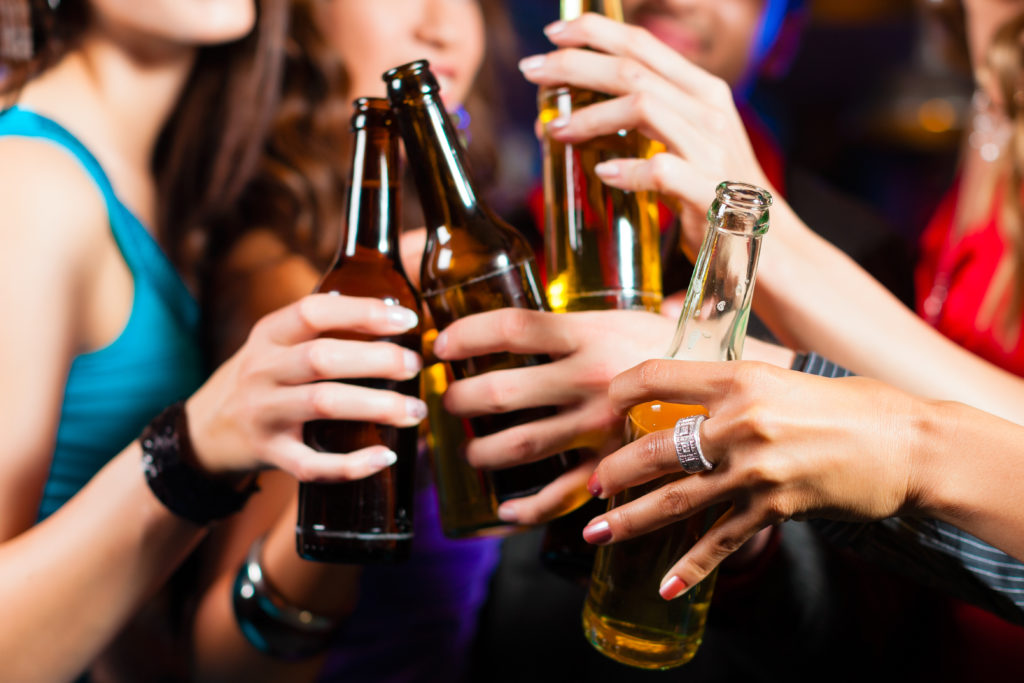
In past blogs, I’ve talked about how drinking alcoholic beverages can raise your risk for Breast Cancer. In fact, you may recall studies that show that women who have a three drinks a week may increase their Breast Cancer risk by 15%! But can some forms of alcohol raise that risk even further? According to recent research, the particular kinds of phytoestrogens found in beer may do just that.
Phytoestrogens in Hops
Hops has been used as a flavoring agent in beer for hundreds of years; it is what gives beer (especially the currently popular “IPAs”) that bitter, “hoppy” taste. Hops flowers have also long been associated with the effect they have on our hormones, especially estrogen.
There are different types of Phytoestrogens that affect the body in different ways.

The type of estrogen a phytonutrient “mimics” is one of the most important factors for determining if a phytonutrient will be a help or a hindrance for breast health. Another very important factor is knowing which cellular receptor sites─ alpha or beta─ a phytoestrogen is more likely to bind with in the body. Soy, for example, is a phytoestrogen that has a propensity to bind mostly with beta receptor sites. Beta receptor estrogen sites are the more protective estrogen receptor sites and may have an anti-proliferative effect. This is why lab-tested non GMO, organic soy-based products such as Haelen are used in natural breast cancer healing protocols for so many women. Xeno-estrogens, on the other hand, connect with alpha receptors almost exclusively and increase the risk for breast cancer.
The type of phytoestrogen that is found in hops is called 8PN (8-prenylnaringenin) or “hopien.” 8PN binds mostly with alpha receptors in the mammary area.
Unfortunately, this is not good news if you are a beer-drinker. It is information you need to know, however.
Recent research has confirmed that the hops content in beer may be enough to raise your breast cancer risk significantly.
You may recall the ground-breaking Women’s Health Initiative Study in 2002 which found a distinct link between synthetic Hormone Replacement Therapy and breast cancer risk in women over 50. Prior to this study, millions of women had been using equine-based synthetic hormone replacement drugs such as Premarin. Consequently, breast cancer rates, especially during the 1980’s and 90’s, skyrocketed. When the findings made headline news and women began to get off the drug in droves, breast cancer rates plummeted. What was the connection between commercial HRT and Breast Cancer? You got it: equine-based estrogens bind mostly with alpha receptors and dramatically increased the risk for breast cancer.
If You Must Drink…

Let’s face it, most of us enjoy a little “nip” every now and then. On the occasion that you find yourself wanting to partake, instead of chugging a beer, choose an elegant glass of red wine instead! Although I am definitely not a proponent of “a glass of wine a day,” as some may be, I do recognize the amazing health benefits that the occasional glass of dark red can have on health. In fact, the resveratrol in red grapes has been shown to suppress the growth of Breast Cancer stem cells. Studies going back almost twenty years have found that low-level consumption of red wine “could have a beneficial anti-proliferative effect on breast cancer cell growth.”
Also, here’s a tip: for your occasional glass, reach for a Malbec if you can. This type of vineyard grape, which grows mostly in South America, has a very thick skin and is cultivated in a slightly cooler climate. This means that its resveratrol content will be higher than other varieties. And, of course, if you can get your hands on an organically or biodynamically-grown wine, all the better– both in terms of health and taste!
Remember that you can maintain your healthy breast lifestyle and occasionally enjoy a social beverage.
How does this article’s suggestion that hops (in IPA beer) increase the risk of breast cancer significantly make sense, when there are a plethora of studies that show hops are actually *preventative* of breast cancer?
e.g. https://www.acs.org/content/acs/en/pressroom/presspacs/2016/acs-presspac-june-22-2016/hops-and-breas-cancer.html
Hi Vivian – this is a great question. From what I gathered in the research, there are components in hops that can both be helpful and harmful for breast cancer risk. Both are present in beer. The studies I reviewed that promote the benefits of hops refer to using *extracts* – extracting the components of hops that are most beneficial, and removing the phytoestrogens that can increase risk.
It appears that the component that you mentioned in this article 8-prenylnarigenin (8-PN) “8-PN showed only a slight increase of metabolism in breast cells, while the other two compounds did not have significant effects in either cell line.” This is according to this study: https://www.sciencedaily.com/releases/2016/07/160711151705.htm. 6-prenylnarigenin, or 6-PN has the protective effects. As a beer lover, I’m looking forward to more research on this subject!
8-PN may increase the risk for breast cancer in postmenopausal women and men but not in fertile women. 8-PN works similar to soy estrogens by binding to the ER thereby blocking the receptor for oestrogens working as an oestrogen antagonist or , if there is no oestrogen, working as a weak oestrogen agonist.